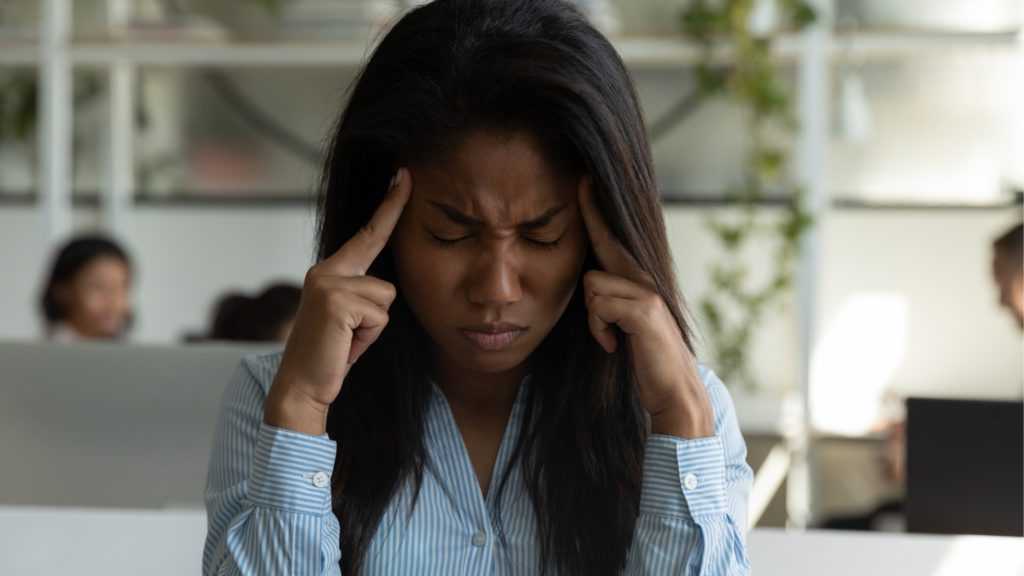Anxiety is an emotion present in all humans and usually stems from a sense of anticipation or fear. Anxiety disorder, however, is a condition in which this overwhelming fear affects your social life, relationships, and life in general. According to surveys, about 3.6% of adults have an anxiety disorder worldwide. There are treatments and various therapies to help those with anxiety disorder. This article will explain anxiety, its causes, symptoms, diagnosis, and the multiple forms of its treatment.
What is Anxiety?
The word anxiety comes from the Latin word “anxietas,” which is roughly translated into “anguish.” It also comes from the verb “anguere,” which translates into “squeeze” or ” suffocate.” Anxiety is a human feeling related to anguish which is characterized by:
- tightness
- suffocation
- and, in general, is associated with the anticipation of an idea, situation, or phenomenon.
Anxiety disorders can lead the person to avoid triggering situations. This may affect their performance at work, school, and personal relationships. To diagnose an anxiety disorder in a person, the fear or anxiety must be disproportionate.

Symptoms of Anxiety
The symptoms of anxiety, when they constitute a disorder, are:
- irrational and excessive fear;
- apprehensive and tense feelings;
- difficulty managing daily tasks and distress related to these tasks;
- difficulty falling asleep;
- muscle tension;
- excessive irritability;
- difficulty concentrating;
- fatigue.
Cognitive, behavioral, and physical symptoms often give an intense feeling of malaise and include:
- numbness in hands, mouth, and whole body;
- feeling the faint and rapid heartbeat;
- tremors in hands and body;
- anxious thoughts (e.g., “I’m losing control”);
- anxious predictions (e.g., “I’m going to mess up my words and humiliate myself”);
- avoiding feared situations (e.g., driving);
- safety behaviors;
- excessive physical reactions to context.
Anxiety symptoms can be confused with emergency conditions such as a heart attack or a neurological disorder such as tremors.

Causes of Anxiety and Risk Factors
The causes of anxiety involve a combination of;
- genetic;
- environmental;
- psychological;
- and brain developmental factors;
Like most mental health problems, anxiety disorders can be caused by psychological factors like:
- stressful or traumatic life event;
- family history of anxiety disorders;
- child development issues;
- abuse of alcohol, drugs, or illegal substances;
- other medical or psychiatric problems.
Causes of anxiety are associated with the activation of brain areas such as;
- prefrontal;
- dorsolateral cortex on the right side;
- parietal;
- and amygdala regions.
Stressful thoughts and situations are believed to be processed by the prefrontal cortex. This activates the amygdala in advance, which causes fear, which triggers the responses of numbness, feeling of suffocation, and heaviness in the chest.
Types of Anxiety Disorders
There are several types of anxiety disorders. Following are some of them:
1. Generalized Anxiety Disorder (GAD)
This is a condition in which the individual is concerned and in anticipation all the time. This worry consumes hours every day and makes it difficult to concentrate or complete daily tasks. This is the most common type among anxiety disorders. A person with Generalized Anxiety Disorder may have:
- Extreme tiredness associated with worry;
- Headaches, tension, or nausea;
- Feeling ringing in the ear, numbness, tingling in the hands or body;
- Trembling in the hands;
- Trembling in the body;
- Accelerated heartbeat;
- Other symptoms of adrenaline release

2. Social Anxiety Disorder
Social Anxiety Disorder means to feel an extreme fear triggered by social situations such as:
- Parties;
- Workplaces;
- Speaking in public;
- Or any situation that involves socializing or even talking to another person;
There is a tendency towards social isolation. They also experience conditions such as “fainting” and intense agitation in public.
3. Panic Disorder
Panic Disorder is characterized by bouts of panic and sudden feelings of terror. Often confused with a “heart attack,” a panic attack causes powerful physical symptoms, including:
- Chest pain;
- Heart palpitations;
- Body tremors;
- Dizziness;
- Shortness of breath;
- Stomachache.
Many people will take desperate measures to avoid a crisis, including social isolation. This is a frequent cause of emergency room visits in anxious patients.
4. Phobias of Anxiety
We all tend to avoid uncomfortable situations, but certain places, events, or objects create powerful reactions of intense yet irrational fear for someone with a phobia. Depending on the type and number of triggers, attempts to control anxiety can dominate a person’s life.

Other Types of Anxiety Disorders
1. Post-Traumatic Stress Disorder (PTSD)
Anxiety symptoms that arise after a traumatic event such as an accident, assault, separation, or loss of a loved one are called post-traumatic stress disorder.
2. Obsessive-Compulsive Disorder (OCD)
You may get this diagnosis if your anxiety symptoms involve repetitive thoughts, behaviors, or impulses.
3. Health Anxiety
If you are experiencing disease-related obsessions and compulsions, you may have this problem.
4. Body Dysmorphic Disorder (BDD)
This includes experiencing obsessions and compulsions related to your physical appearance.
5. Perinatal Anxiety
Anxious symptoms that develop during pregnancy or in the first year after childbirth are called perinatal anxiety.
Diagnosis of Anxiety Disorders
Anxiety Diagnosis is a clinical diagnosis. An examination serves to rule out the possibility of diseases causing the symptoms of;
- numbness,
- headache,
- malaise,
- racing heart.
The investigation of patients is always standard. Some patients are even afraid of regular exams, but this is proof that they have a psychic condition. To diagnose types of anxiety, the physician takes into account the guidelines of the Diagnostic and Statistical Manual of Mental Disorders. The DSM standardizes criteria for anxiety, depression, and other mental conditions.

Anxiety Treatment
Anxiety Treatment involves many professionals and includes:
- Medicines;
- Psychotherapy;
- Complementary therapies.
The first step in treatment is confidence in the diagnosis. Consult a good doctor to ensure that there are no physical problems. If it is diagnosed, a mental health professional will work with you on the best treatment. While each anxiety disorder has unique characteristics yet, most people can be cured.
Medications
Medications provide significant symptom relief. The most used drugs are anxiolytics (prescribed for a certain period) and antidepressants. Beta-blockers are used to control the physical symptoms caused by the excessive release of adrenaline.
Cognitive Behavioral Therapy (CBT)
This type of psychotherapy helps the patient relearn how to think, react and behave, thereby decreasing anxiety symptoms. It also includes emotional balancing and balancing positive and negative thoughts.
Complementary Therapies
These are body care and diet therapies that include:
- Breathing Techniques and Stress Management;
- Meditation, mindfulness, and yoga;
- Exercise;
- Healthy diet, rich in vegetables, fruits, grains and low sugar and processed foods;
- Consuming probiotics: foods associated with improving mental health;
- Avoid caffeine, smoking, and alcohol abuse.

Participating in support groups can provide an opportunity to share experiences. Also, learn more about the specifics of the disorder, tips to manage it, and help family and friends better understand the problem. If you experience any of these symptoms, be aware that there are effective treatments. Unfortunately, many people with anxiety disorders don’t seek help because they don’t think they have an illness. Denying this condition can harm your intimate and professional life. You can regain your quality of life with the help of healthcare professionals trained for this goal. You can seek the help of a psychiatrist via Marham.pk.
FAQs
1. Anxiety in children, is it possible?
Children suffer a lot from this problem. The so-called separation anxiety can appear in children between 6 and 10 years old. They have difficulty dealing with their parents’ separation, whether at home or school. Pressures at school, bullying, and other expectations can also make little ones anxious.
2. Can anxiety be cured?
Anxiety disorder has no cure, but there are ways to reduce its symptoms.
3. Are anxiety and fear always associated?
Fear is an unpleasant emotion but is necessary. It alerts us to the presence of danger. The problem occurs when fear and anxiety go together and create phobias. Phobia is the anxious and intense facet of fear. It can be related to an object or situation, such as fear of cockroaches or social phobias.
4. Does anxiety cause sleep problems?
About half of people with anxiety disorder suffer from sleep problems. The nervousness and tension of anticipating something are great. That’s why they cannot fall asleep or wake up in the middle of the night and cannot go back to sleep.
5. Is there a way to treat anxiety?
Psychotherapy is an excellent ally in the fight against anxiety disorder. It has shown promising results in reducing symptoms and controlling the triggers. The most used anxiety symptoms belong to the anxiolytic class. They help control the physical symptoms and are used in the most severe phase of the disease. The antidepressants act in regulating communication in the body. They are recommended for long-term treatment. You must see a psychiatrist so that the correct medication is prescribed. There are also natural treatments that involve lifestyle changes such as;
- Physical exercise;
- Healthy and balanced diet;
- Productive leisure time;
- Meditation.
These can be great alternatives for those who do not want to use antidepressants and still live without a crisis.
Book an appointment now, to answer all your queries. You can book an appointment with the top psychiatrists in Pakistan through Marham by calling at Marham helpline: 0311-1222398 or by online booking facility through the website or Marham mobile app.
Can’t Find The App?
Android Users:
https://play.google.com/store/apps/details?id=controllers.marham.marhammed&hl=en
Drop a review for us at Playstore if you’ve had a good experience!
iPhone Users:
https://apps.apple.com/pk/app/marham-find-a-doctor/id1095243102
Stay Home. Stay Safe!

